IDIA 2020: The Winners!
Now that the International Digital Intelligence Awards 2020 are all wrapped up (a year later than expected!), we’re excited to announce the winners! Each has completed outstanding work in their field and deserve the recognition for it. We feel honored to have been able to present them with their Awards.
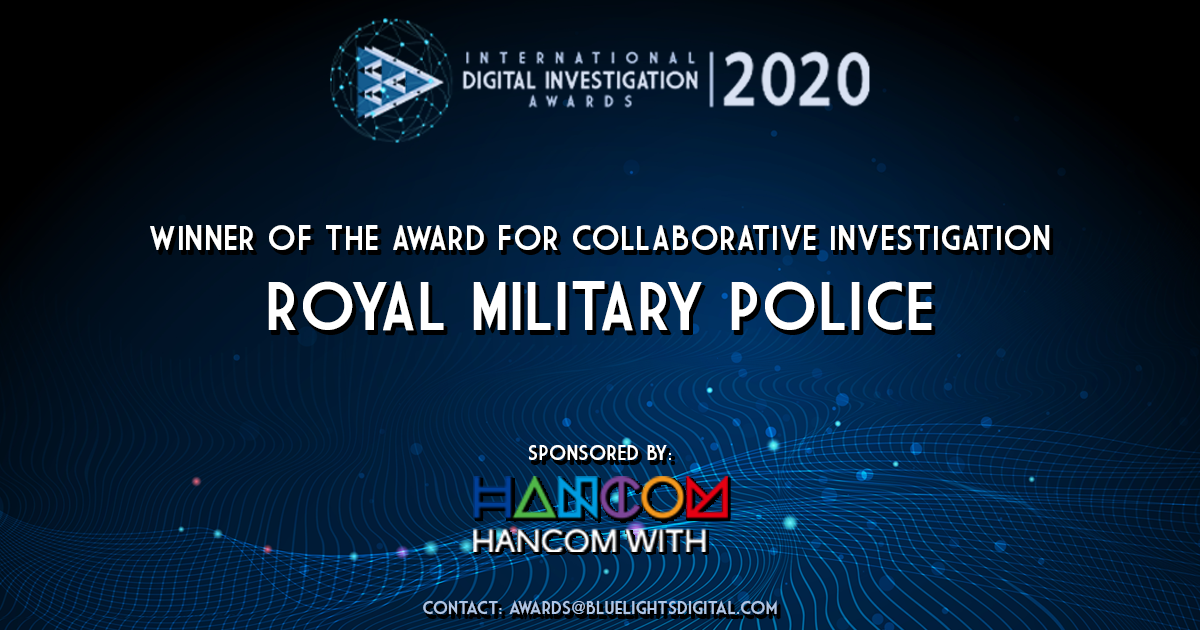
RMP provided digital forensic investigative assistance to the Royal Navy on an investigation into a serviceman for alleged possession of indecent child images. A collaboration consisting of military and police agencies was established to progress the investigation including the extraction of data from storage devices belonging to the suspect. The early care assessment led to finding immediate child safeguarding issues and the collaborative approach enable the identification of the child in 3 hours who was safeguarded. Following investigation, the suspect was successfully prosecuted.
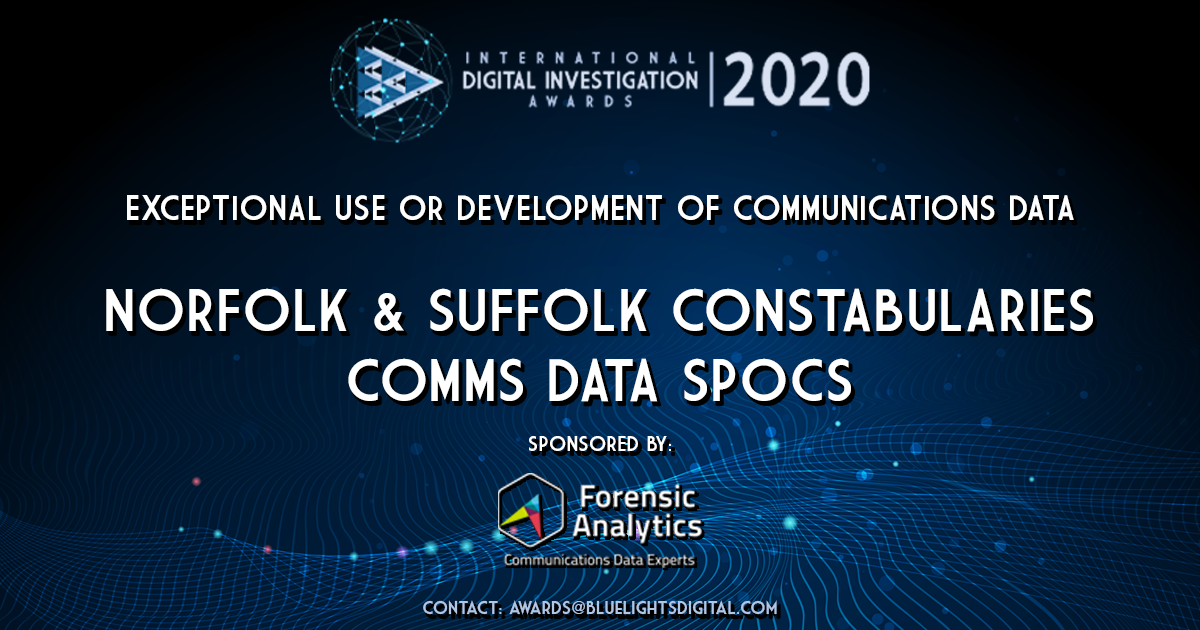
After receiving a 999 call from a woman saying she was taken hostage by 4 men with no additional information but the name of the town, they set to work trying to locate her starting with the BT Zone Code. Using Google android data, the zone code and eventually moving to Google and IP data, they identified a person of interest and resolved the call to an address which was attended by officers and found to be a hoax call. The corroboration between the companies involved and the teams skills around communications data means the work would have saved a hostage before harm came to them had it been a real situation.
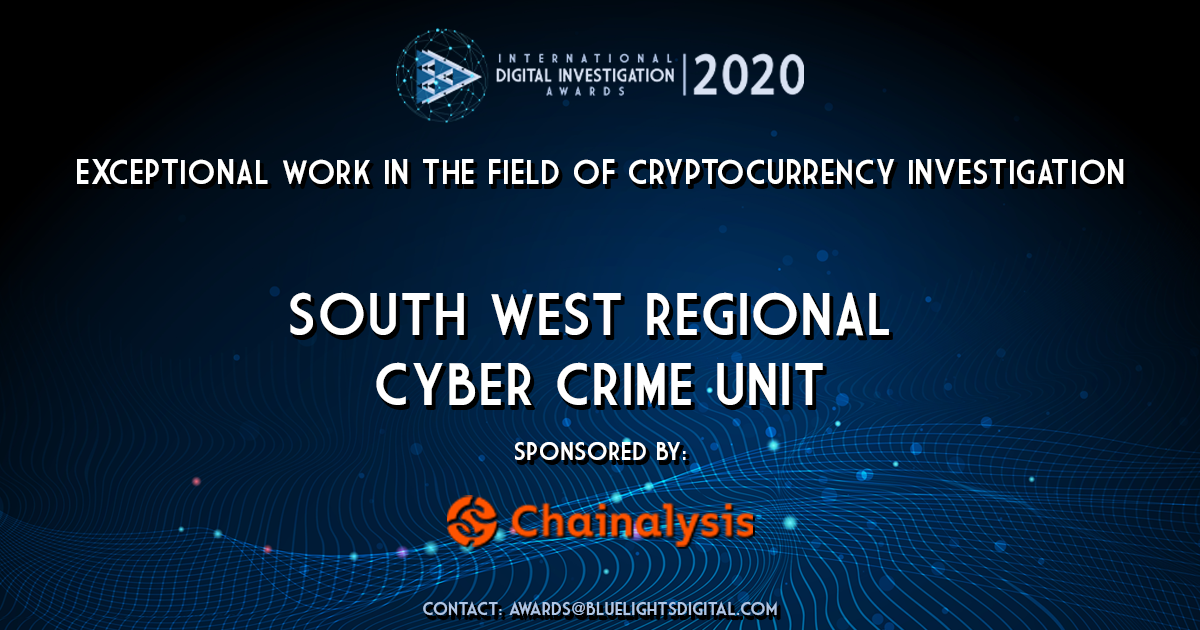
In 2018 an investigation was launched into the theft of cryptocurrency from a single victim, but it turned out to be a small part of a larger picture. It was found there were around 4,000 transactions with value of approximately $6m and there were links to an investigation where a corporate victim had lost approx. $22m in cryptocurrency. An investigator built a case analysing numerous complex data sources leading to the identification of suspects: 3 UK, 2 Netherlands and 1 Ukraine nationals. An International day of enforcement action was organised for the UK and Netherlands and 6 suspects were arrested. This
was a unique investigation within the UK.
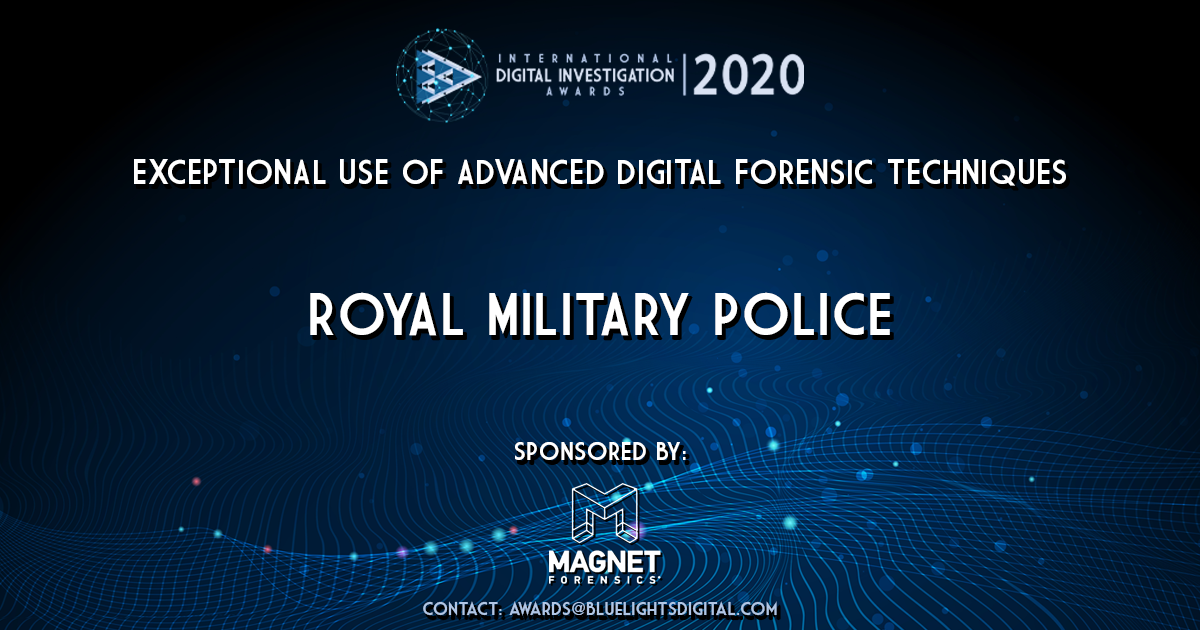
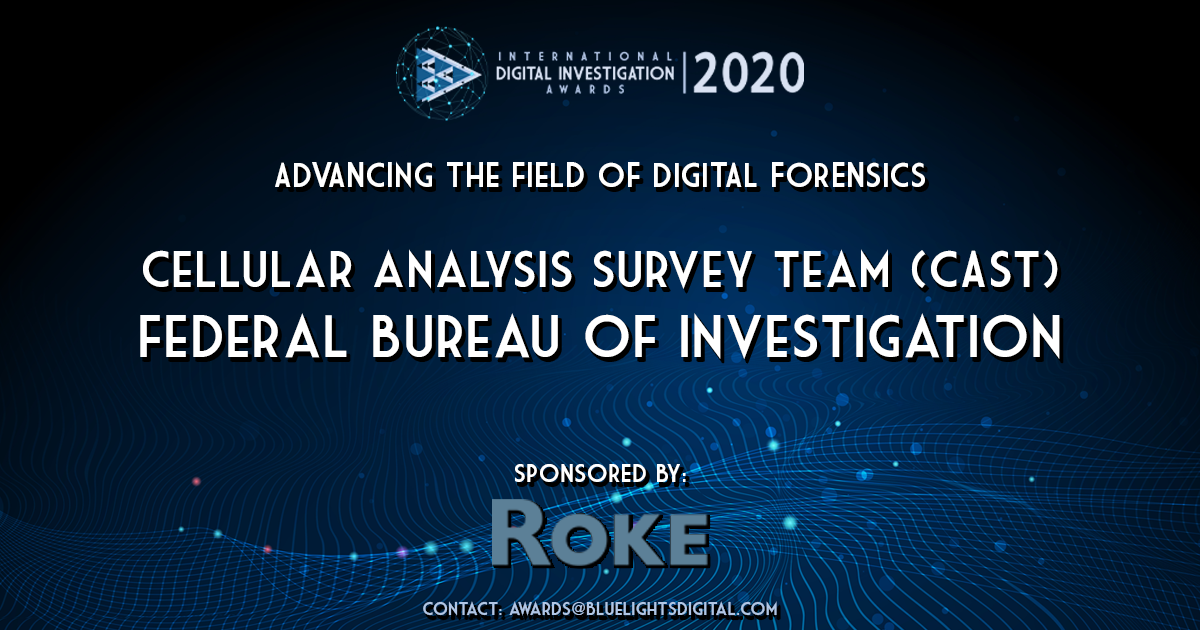
In 2016, two members of the FBI were working on a possible serial killer investigation. They started looking for alternative methods to locate further devices, leading them to learn that Google maintains a location database with information on hundreds of millions of devices worldwide. The agents were able to show how this information would be applied to past and present investigations by creating a digital geographical fence around a crime scene enabling common devices across multiple locations to be identified.

This analyst leads created an analytical profile into knife crime within the dark web, identifying banned weapons, marketplaces, vendors, and buyers within the UK using a combined approach of traditional policing and new, innovative techniques. By instigating a manual review of active marketplaces and then using non traditional techniques to produce intelligence packages, this project has provided a ground-breaking understanding of exposure to knife crime and resulted in a ministerial briefing and intelligence packages disseminated out across UK policing.
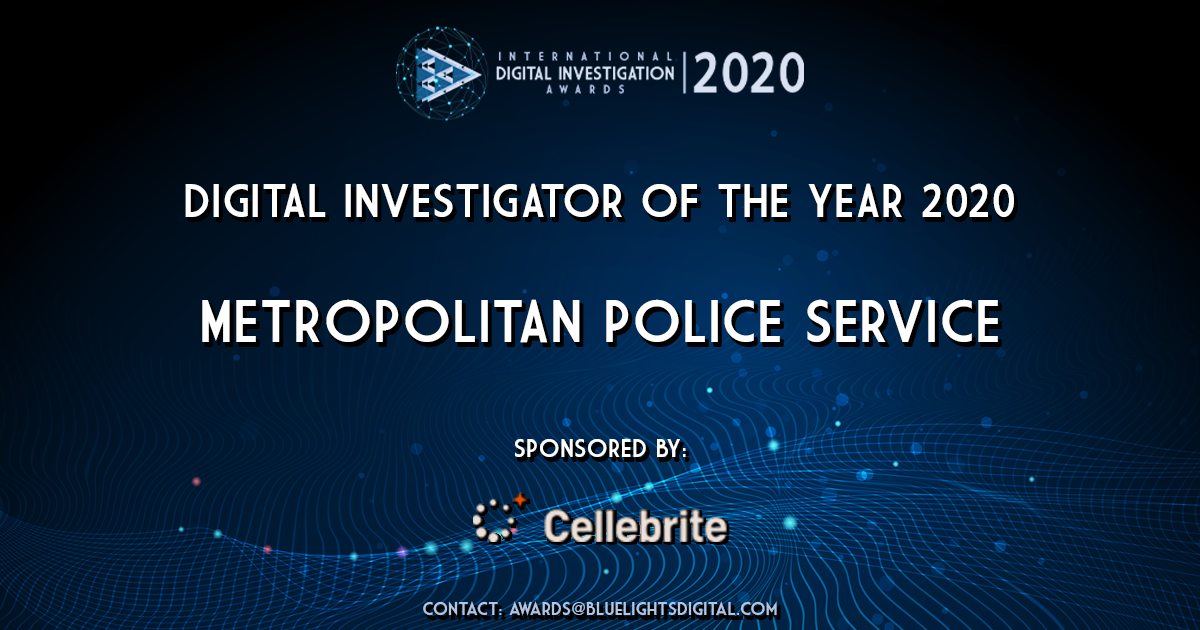
A SPoC officer worked on an investigation that ended with two men being convicted of murder. Utilising various intelligence sources, overlayed with communications data, the SPoC officer was able to lead officers to an address and two men were arrested for an unprovoked violent attack on a young girl who had been sat in a park. The young girl died on the way to hospital, but the SPoC’s work was integral to identifying and apprehending the offenders.
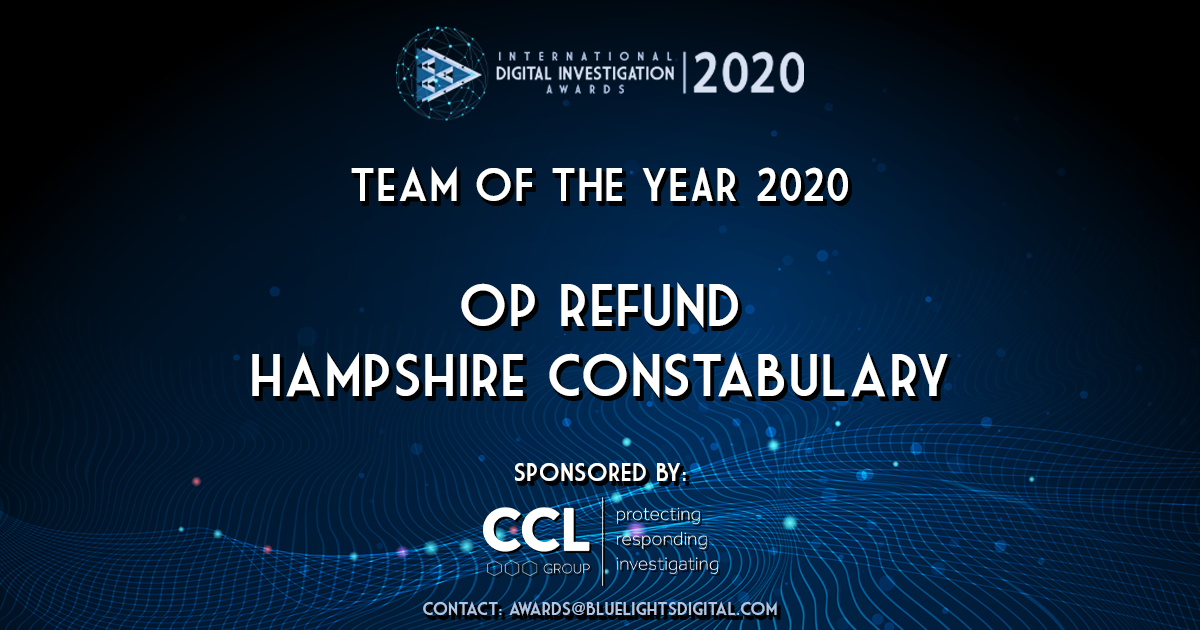
In 2018, a 13-year-old girl was brutally murdered. A suspect was identified in 24 hours and arrested. They ran enquiries into viewing 11 200 hours of CCTV and searched an area of approximately 610 000 sq mt. The suspect’s laptop and girl’s iPad showed email and web data that a message had been sent from the suspect to a new Facebook account 90 mins before the girl left home for the last time. Using Google cloud data, they were able to link the suspect’s phone to the scene and the route he took away from the murder, leading to the recovery of clothing and gloves covered in forensic evidence.
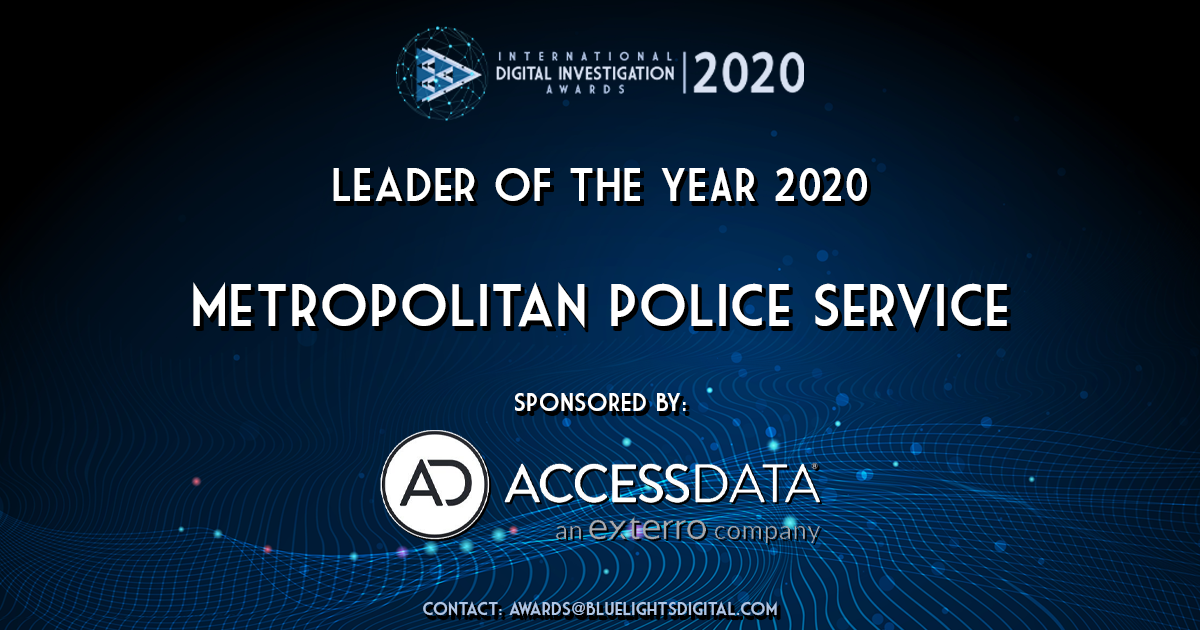
In 2019, this leader delivered 4 projects, each one a significant success. These include introducing the IPA and building a new standard application format that led to the significant decease of applications returned for rework with direct training to 2500 officers; the number of SPoCs of the team almost doubling due to redesigning shifts and department restructure; secured investments in technical training; invested resources in creating a specialist IP pod resulting in the reduction of IP based errors. They use their team’s ideas to help design new processes and lead with a clear strategic vision whilst upholding the highest ethical standards.
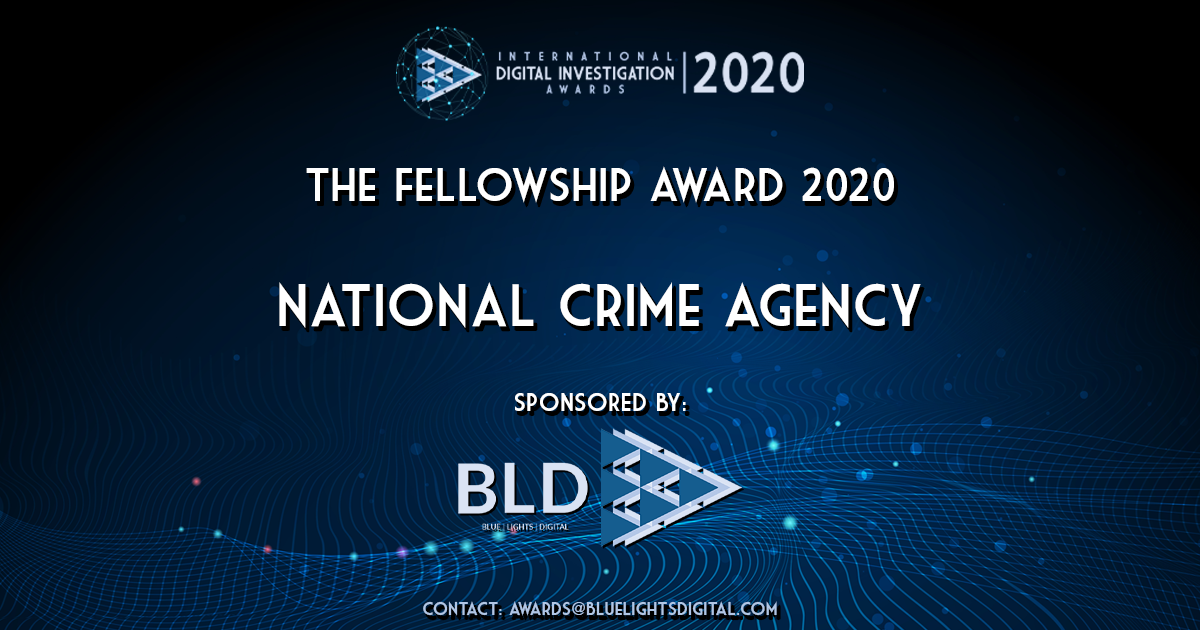
We’d like to thank everyone who attended the event and we’re so glad it could go ahead in this reimagined format. In a time where everyone is so distant, it was lovely to be able to bring people together to celebrate.
Now to look forward to next year!
